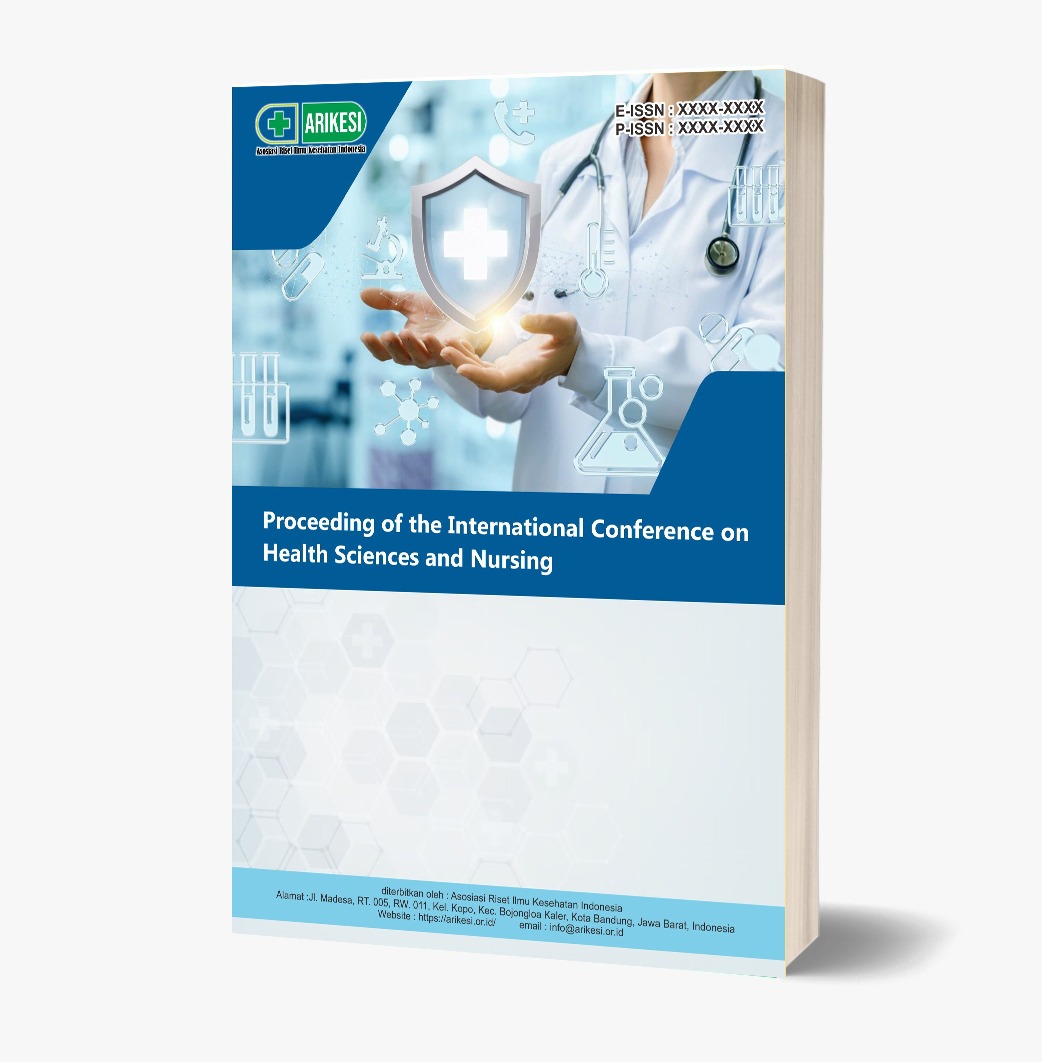The Role of Leadership on Organizational Performance Through Paramedic Loyalty in Public Health Centers
Keywords:
leadership, Organizational, loyalty, paramedicAbstract
This study examines the role of leadership in enhancing organizational performance through the mediating effect of paramedic loyalty in public health centers (Puskesmas). Using a quantitative approach, data were collected from paramedics working at various Puskesmas through structured questionnaires. The research model hypothesizes that the role of Puskesmas leaders positively influences both paramedic loyalty and organizational performance, with paramedic loyalty also having a direct positive impact on performance. Furthermore, the study explores the mediating effect of paramedic loyalty on the relationship between leadership and organizational performance. Data analysis was conducted using regression and mediation techniques to test the proposed hypotheses. The findings indicate that effective leadership significantly increases paramedic loyalty, which in turn enhances the overall performance of Puskesmas. Additionally, the results reveal that paramedic loyalty partially mediates the relationship between leadership and organizational performance, emphasizing the importance of fostering loyalty among healthcare staff to achieve optimal organizational outcomes. This research provides valuable insights for public health administrators and policymakers to develop leadership strategies that strengthen staff commitment and improve service delivery in public health centers.
Downloads
References
Baksh, G., Ali, O., Haydo, M., Velasco, C. M., & Reesor, H. (2024). Abstract 4135127: Traveling more than a 20-mile radius to a Heart Failure Center can affect the quality of Heart Failure Care. Circulation, 150(Suppl_1), A4135127–A4135127. https://doi.org/10.1161/circ.150.suppl_1.4135127
Bano, D. S., Athar, A., & Mughal, S. (2023). The effect of leadership and teamwork on employee loyalty and organizational trust as a mediating variable. GMJACS, 13(1), 54–77. https://doi.org/10.59263/gmjacs.13.01.2023.287
Danxia, L., & Wareewanich, T. (2024). The impact of organizational justice on employee loyalty: The mediating roles of hygiene and motivators. Educational Administration: Theory and Practice. https://doi.org/10.53555/kuey.v30i5.7111
Egnatovich, J. P., & Jasmine, J. (2025). Soft skills and the perceived necessity of a college degree for the paramedic profession. Journal of Paramedic Practice, 17(2), 68–76. https://doi.org/10.12968/jpar.2024.0034
Harianto, J. E., Umam, F. C., Ginanjar, F., Hidayat, Y., & Muiz, A. (2025). The impact of leadership styles on school performance: A comparative study of educational management models. International Journal for Science Review, 2(3). https://doi.org/10.71364/ijfsr.v2i3.23
Hasanbasri, M., Maula, A. W., Wiratama, B. S., Espressivo, A., & Marthias, T. (2024). Analyzing primary healthcare governance in Indonesia: Perspectives of community health workers. Cureus. https://doi.org/10.7759/cureus.56099
Hidayat, C., Hermawan, A., & Berliyanti, D. O. (2024). The influence of organizational culture, transformational leadership on organizational citizenship behaviors, and organizational commitment through employee engagement. Indonesian Journal of Education and Social Sciences, 3(2), 100–120. https://doi.org/10.56916/ijess.v3i2.635
Kushariyadi, K., Wahid, D. A., Albashori, M. F., Rustiawan, I., Ardenny, A., & Wahyudiyono, W. (2025). Performance management based on key performance indicators (KPI) to improve organizational effectiveness. Maneggio, 2(1), 90–102. https://doi.org/10.62872/7yx54j15
Martin Loya, M. R., Meadan, H., & Gilmartin, E. M. (2025). Experiences and needs of leaders supporting multilingual ABA staff: A qualitative exploration. Journal of Autism and Developmental Disorders. https://doi.org/10.1007/s10803-025-06816-w
Melisani, M. M., Devi, N. K., & Naser, H. (2024). Employee engagement mediation: Employee performance through employee loyalty and organizational commitment. International Journal of Science and Society, 6(1), 168–184. https://doi.org/10.54783/ijsoc.v6i1.1004
Mezentseva, I. V., Pavlovych, O. S., & Yarlykova, V. D. (2025). The role of physical rehabilitation in maintaining health and improving the quality of life of the elderly. Art of Medicine, 117–123. https://doi.org/10.21802/artm.2024.4.32.117
Pérez-Arechaederra, D., Briones, E., & García-Ortiz, L. (2025). Communication and relationships: How patients perceive informational and interactional organizational justice can improve patient-centered care, a study with samples from Spain and the U.S. BMC Health Services Research, 25(1), 350. https://doi.org/10.1186/s12913-025-12461-x
Purnama, C., Rahmah, M., Fatmah, D., Rahmah, Y., & Rahmah, Z. Z. (2025). Enhancing patient management effectiveness: The roles of transformational leadership, safety culture, employee satisfaction, and service digitalization in the digital healthcare era. Journal of Management World, 2025(2), 519–529. https://doi.org/10.53935/jomw.v2024i4.984
Siahaan, A. S. P., Nasution, S. L. R., & Girsang, E. (2024). Exploring the link between leader-member exchange and job satisfaction in the laboratory: A case study of nurses at Royal Prima Medan hospital, Indonesia. Jurnal Teknologi Laboratorium, 13(2), 197–209. https://doi.org/10.29238/teknolabjournal.v13i2.560
Siswadhi, F., Widyastuti, T., Sawitri, N. N., Hadita, H., & Yuliviona, R. (2025). Transformational leadership in e-government: Fostering innovation and efficiency in public administration. International Journal of Social and Human, 2(1), 55–66. https://doi.org/10.59613/5ebaf708
Suardhika, I. N., Prabawa, I. P. A. S., & Agung, A. A. P. (2025). The situational leadership and employee competence: Assessing the impact on employee performance through work motivation. Journal of Economics, Finance and Management Studies, 8(2). https://doi.org/10.47191/jefms/v8-i2-32
Suryakumar, S. A. (2025). The impact of trait emotional intelligence and cognitive performance on leadership styles and organizational outcomes. Journal of Information Systems Engineering and Management, 10(25s), 274–287. https://doi.org/10.52783/jisem.v10i25s.3985
Vahedi, H., Rahmani Shivyari, S., Soltanmohamadi, S., & Babakhanian, F. (2024). The role of leadership competence and organizational culture in enhancing healthcare service quality. Journal of Archives in Military Medicine, 12(3). https://doi.org/10.5812/jamm-156498
Xue, X., Tao, J., Li, Y., Zhang, G., Wang, S., Xu, C., & Moreira, P. (2025). Impact of clinical leadership on frontline nurses’ quality of care: Work engagement as mediator role. BMC Health Services Research, 25(1), 560. https://doi.org/10.1186/s12913-025-12515-0
Yahya, S., Ali, H., & Sasanti Munir, N. (2024). The influence of leadership and organizational culture on employee performance through employee loyalty at the Prestasi Cendikia Foundation, Bekasi. Dinasti International Journal of Digital Business Management, 5(5), 1067–1082. https://doi.org/10.38035/dijdbm.v5i5.3340
Ying, Z., Hassan, M. A., Shahrulnizam, N. A. A., Kelana, B. W. Y., Saadon, M. S. I., & Baker, R. (2025). The future of nursing leadership: Adapting leadership styles for remote work environments. International Journal of Research and Innovation in Social Science, 9(3), 2339–2351. https://doi.org/10.47772/IJRISS.2025.90300182







